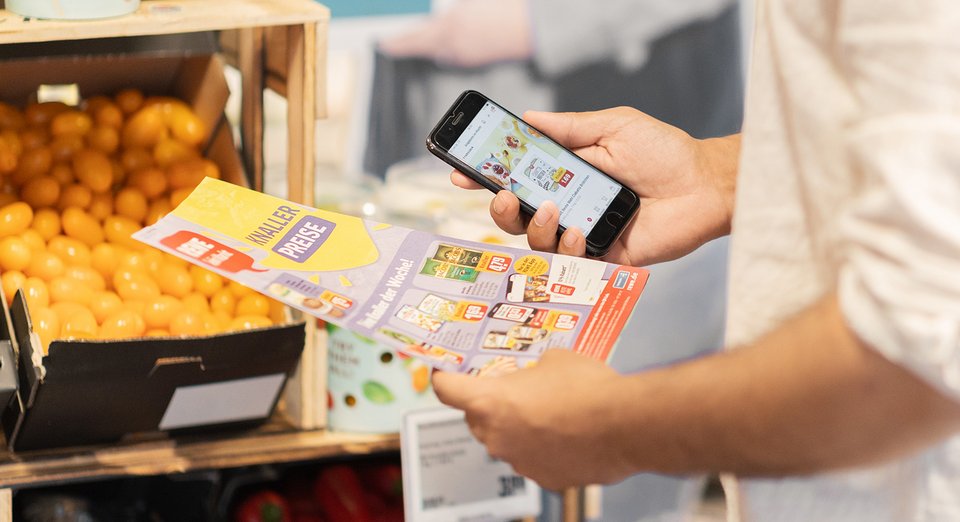
The end of a retail tradition: REWE is the first food retailer in Germany to decide to phase out printed flyers. The weekly leaflet about the offers in the more than 3,700 REWE stores nationwide is one of the oldest advertising media in the industry and is distributed to many millions of households in Germany.
In line with the sustainability and digitalisation strategy, this will soon come to an end: on 1 July 2023, the printing and distribution of brochures will be discontinued and article advertising via new and familiar media will be significantly expanded. The effect on the environment, climate and resource conservation is immense: the changeover will save more than 73,000 tonnes of paper, 70,000 tonnes ofCO2, 1.1 million tonnes of water and 380 million kWh of energy per year. The latter has become increasingly important, especially in light of the current debate about the future security of energy supply in Germany - which is why the implementation of this decision, which had already been taken, has now been accelerated.

"In the past, REWE has repeatedly shown courage on the basis of its sustainability strategy, questioned the old and consistently introduced more sustainable alternatives. In this respect, REWE was also the first food retailer in Germany to switch all its stores to green electricity back in 2008 and to ban plastic carrier bags from its stores in 2016. Now, REWE is once again leading the way in the sector by no longer printing and distributing flyers. This step not only massively reduces ourcarbon footprint, it is also another milestone in the context of our climate targets - and at the same time, in times of crisis, a solidarity contribution to support the challenging security of supply of energy sources in our country for the future," says Lionel Souque, CEO of the REWE Group.

„We are rethinking and reorganising our product communication for the future. We want to reach customers of all ages in a more modern and targeted way via the media they actually use.“Lionel SouqueCEO of the REWE Group
NABU has been advising and supporting REWE's commitment to sustainability as a neutral and independent body since 2009. Together, Germany's largest environmental organisation and REWE are pursuing the goal of reducing resource consumption and avoiding waste. NABU was also involved in the decision to stop using plastic carrier bags in 2016. "Paper production has a considerable impact on the environment: industrial forestry and massive logging destroy natural ecosystems andCO2 sinks, and environmentally harmful chemicals and large quantities of water and gas are also required. It is therefore quite clear that we have to change something if we want to protect our livelihoods," explains NABU's Federal Managing Director Leif Miller. "NABU is pleased that REWE is taking its responsibility seriously and is leading the way by phasing out the hand label. This is an important decision for the benefit of nature, which we hope many competitors in the food retail sector will follow," says Leif Miller, NABU's Federal Managing Director.

REWE has been consistently committed to Sustainability in its corporate strategy for years and is gradually and successfully transforming processes and offerings with this in mind. Above all by means of digitalisation - where there is added value for customers. This is why the traditional leaflet has been under scrutiny at REWE for some time. Following a successful test, it was decided to replace this energy- andCO2-intensive medium with increased price communication via digital channels and adverts in traditional media. Of course, the more than 200 REWE special offers will still be available every week in the future, just no longer in printed form, but in an environmentally friendly way on digital channels such as the REWE app as well as numerous coupons and benefits. Cost savings from the discontinuation of the paper flyer will be invested in other media for communicating offers, among other things. In this way, REWE is also making a significant contribution to climate protection by reducing the consumption of resources within the value chain (CO2 footprint).

„This step not only massively reduces our carbon footprint, it is also another milestone in our climate targets - and at the same time, in times of crisis, a solidarity-based contribution to supporting the challenging security of supply of energy sources in our country for the future.“Lionel SouqueCEO of the REWE Group
"We are rethinking and reorganising our product communication for the future. We want to reach customers of all ages in a more modern and targeted way via the media they actually use," Lionel Souque continues. "We will of course continue to have over 200 attractive special offers for our customers every week as usual. The cost savings achieved by discontinuing the paper flyer will be reinvested in other marketing channels and in selected sustainability projects such as the NABU Climate Fund. We are delighted that this will enable us to massively reduce ourCO2 footprint. We are thus making a very important contribution to society."
Divisional Director and retailers on phasing out the flyer
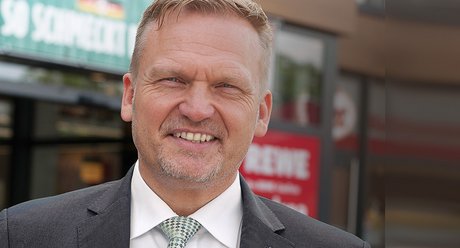 REWE plans to discontinue the print flyer in summer 2023. one spoke to Divisional Director Peter Maly about the effect on the environment, climate and resources, modern ways of communicating with customers and feedback from retailers.
REWE plans to discontinue the print flyer in summer 2023. one spoke to Divisional Director Peter Maly about the effect on the environment, climate and resources, modern ways of communicating with customers and feedback from retailers.
To date, REWE has distributed around 25 million flyers every week. More than 73,000 tonnes of paper were produced and printed for this in 2021. Paper production and printing are particularly energy-intensive and are responsible for 90 per cent of thecarbon footprint of flyers. In this respect, the best advertising for the acceptance of the decision is the benefit for the environment.
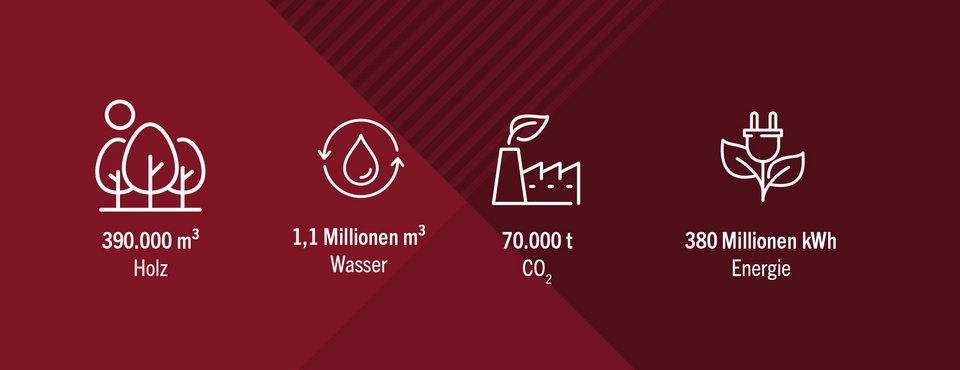
The savings potential* resulting from the switch to digital flyer communication is illustrated by the following comparisons:
- Environment: around 390,000 m³ of wood, which corresponds to the amount of wood used in 356 REWE Green Farming stores
- 1.1 million m³ of water
- Climate: a good 70,000 tonnes ofCO2, equivalent to the annual CO2 emissions of more than 60,000 cars with combustion engines
- Energy: around 380 million kWh, equivalent to the annual electricity consumption of 100,000 4-person households
As a first step, REWE will reduce the number of paper flyers by 4 million from the beginning of August 2022.
* Figures based on calculations by Systain Consulting GmbH
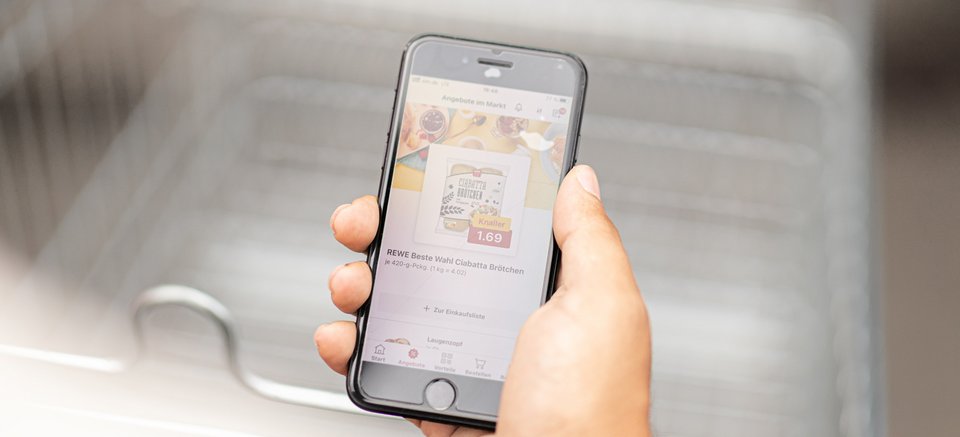
With increasing digitalisation, the media channels and therefore the opportunities to place advertising efficiently and in a more resource-efficient manner have increased. At the same time, media consumption has changed and with it the ways in which purchasing decisions are made. Against this background, there are also opportunities for REWE in marketing to reduce resource consumption and greenhouse gas emissions in line with its own sustainability and climate targets and even to increase the visibility of its offers through more frequent and comprehensive communication. Essentially, the leaflet content is being digitised. The principle, scope, product selection and price attractiveness of the weekly offers will remain unchanged. The digital version of the flyer - at rewe.de/angebote and in the REWE app - will also remain unchanged. In addition, REWE will increasingly advertise the more than 200 promotional items per week in traditional media and support the changeover with an intensive and longer-term marketing and Sustainability campaign under the motto #umdenkbar. Promotional price labels on the shelves in REWE supermarkets will also continue to provide clearly visible information about which items are discounted that week.

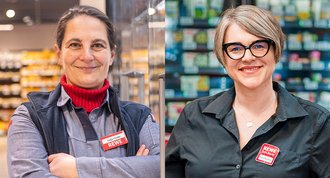
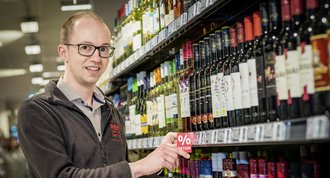
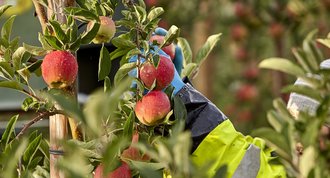
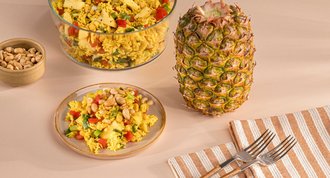
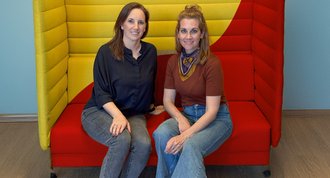
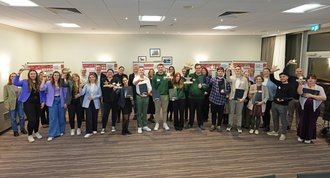
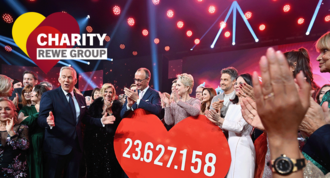
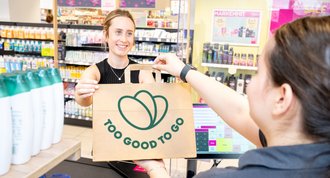
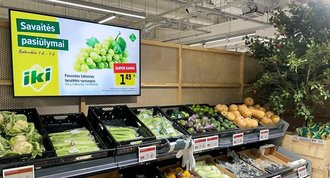
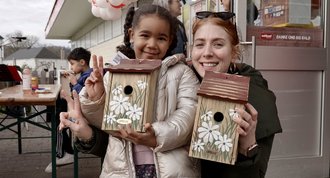
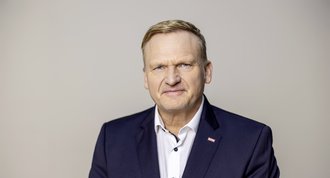
Both German and English comments appear here.
Many customers are literally waiting for the collection of advertising brochures. I am very unsure whether we are not voluntarily putting ourselves at a painful competitive disadvantage here. The conservation of resources and the associated cost savings are enormous. But the customers who no longer turn up are certainly also...
I think it's a bit too early for our older people. Not everyone has gone digital yet and we should wait a few years and respect that. If this decision remains, the leaflets should be made available to those who really need them, disposed of sensibly and don't have internet access. If necessary, you could also have it delivered to your home as a small subscription for a few euros, which would be better than no leaflet at all. That way REWE makes a profit and the customers get their REWE leaflet. I think it's a shame that everything is always decided solely by the companies and that there is no consultation with the consumers. After all, you could lose a lot of customers by discontinuing the flyers...
I think this decision is right and good, especially as other supermarkets are sure to follow suit and thus significantly reduce the amount of waste paper. However, I would also suggest positioning a display box or similar in front of the store where the weekly offers are displayed for everyone to see. Oh yes.... and what about PENNY..... is also interesting for our discounter, isn't it?
The classic, printed flyer continues to be of great importance as a wide-reaching and important (price) communication medium in discount grocery stores. Despite this, PENNY is also increasingly focussing on the expansion of digital offer communication. We are focusing on optimising the print and online media mix not only in terms of its efficiency, scope and circulation, but also with regard to ecological aspects such as the use of banderoles instead of plastic packaging.
In my opinion, you should at least display the offers in the entrance area in a large format, especially for Rewe customers....
Although this will be met with incomprehension by older customers in particular, it is definitely the right way forward and I am glad that we are taking this path.
In principle, I think that's a good idea. I just wonder how my mother-in-law, who can barely make a call on her mobile phone, is supposed to keep up with all the offers. In general, I see a problem with many older people that the offers are then still noticed at all.
It would be great if you could go through the offers with your mother-in-law at regular intervals, if possible.